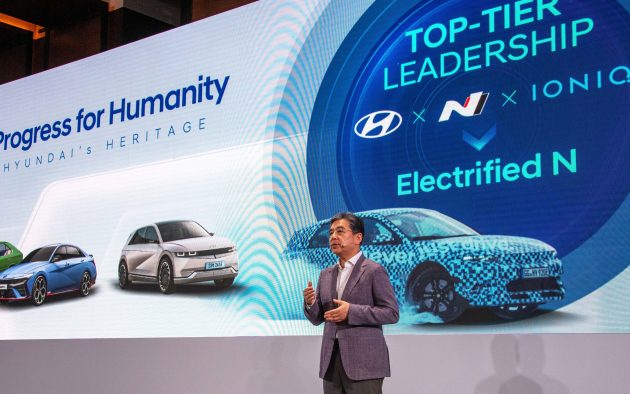Hyundai has flagged plans for its first electric ute as part of at least 13 new electric models to be produced on a new EV platform that forms the central part of its “accelerated electrification” program.
The South Korean car giant used its 2023 Investor Day presentation in Seoul this week to provide an update of its next-generation Integrated Modular Architecture (IMA) platform, which is due to be launched in 2025.
It will replace the current E-GMP platform which the Hyundai group used to launch its highly regarded and award-winning Ioniq 5 and Ioniq 6 EVs, along with the Kia EV6 and Genesis GV60.
“The new dedicated EV platform will significantly expand the vehicle segment coverage compared to the current E-GMP platform,” the company said. “Widening the segment coverage from small to super large SUVs, pickup trucks (utes) and the Genesis brand.”
Hyundai says the new IMA platform will create economies of scale that will be needed as the competition in the EV market intensifies, and car makers such as Tesla find new ways to slash the cost of Ev production.
The company plans to invest KRW 109.4 trillion ($A125 billion) over the next ten years in its goal to become a “smart mobility solution provider”. Of this massive sum, KRW 35.8 trillion ($A41 billion) will go toward electrification, including KRW 9.5 trillion for battery development.
Hyundai wants to continue building EVs and ICE vehicles in the same factories. “In order to expand production volume for EVs, we are not only planning to build new EV plants but also looking into ways to swiftly and effectively respond to demand by utilizing our existing plants,” said Jaehoon Chang.
While CEO Jaehoon Chang makes the case that the utilisation of existing ICE vehicle lines for EV manufacturing is an advantage for legacy automotive companies over EV startups, the reality tells a different story with ground up EV makers Tesla and BYD lightyears ahead on EV production volumes.

Spending time and effort on combined lines just delays the inevitable need to someday build dedicated EV lines. It also adds additional complexity to an already highly complex manufacturing process.
Hyundai is however also building dedicated plants.
“Currently we are producing EVs in Korea, US, Czech India and Indonesian plants using mixed model production lines and will continue to convert more production lines in accordance with market demand,” said Jaehoon Chang.
“We have plans to build EV dedicated plants in markets where significant growth is anticipated and thus local production is required.” This includes the US state of Georgia, where the company is building a dedicated EV plant with the target production of 300,000 EVs in the second half of 2024.
Hyundai continuing investment into ICE and hydrogen cars
However, based on the numbers provided by the company, just 33% of Hyundai’s KRW 109.4 trillion “smart mobility” investment is going into electrification, with the rest presumably going into hydrogen and ICE vehicles.
“Over the next three years as ICE will still account for a large proportion of total sales thus 50% of our investment will be for ICE and the other 50% for future technologies,” said executive vice president and CFO Gang Hyun Seo during the presentation.
“However, from 2026 when EV sales grow significantly, HMC (Hyundai Motor Company) will gradually decrease our investment in ICE and from phase three, when the company is expected to make more from EVs than from ICE vehicles, we will continuously lower investment in ICE while increasing investment in electrification and mobility.”
Jaehoon Chang noted that legacy OEMs and new EV startups are competing fiercely to become a leader in the EV market.
“And the market seems to consider startup EV strategies the right answer to electrification or that legacy OEMs have disadvantages and cost risks on the road to electrification,” he said.
Hyundai’s mixed EV/ICE strategy is a very different approach to that of Ford’s who is splitting off its EV business completely.
Time will tell which company has it right.
See also: Kia begins deliveries of EV9 electric SUV in South Korea

Daniel Bleakley is a clean technology researcher and advocate with a background in engineering and business. He has a strong interest in electric vehicles, renewable energy, manufacturing and public policy.

